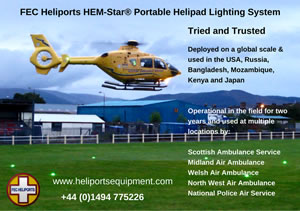Boeing Defense, Space & Security2011-11-22 06:55:42
Boeing Receives F/A-18E/F Infrared Search & Track Development Contract
New IRST system for Super Hornet can detect and track multiple targets in electronically denied environments
Boeing has received a $135 million contract from the U.S. Navy for engineering and manufacturing development of the F/A-18E/F Super Hornet Infrared Search and Track (IRST) sensor system.
The F/A-18E/F IRST system is a passive, long-range sensor that searches for and detects infrared emissions. The system can track multiple targets simultaneously and provides a highly effective air-to-air targeting capability. IRST allows the user to detect advanced threats, even those equipped with radar-jamming technology.
IRST is an important element of the U.S. Navy's F/A-18E/F Block II Super Hornet Flight Plan - a series of planned capability enhancements that ensures the Super Hornet will continue to outdistance known and emerging threats over the coming decades. The IRST system is scheduled to achieve Initial Operating Capability in 2016.
"The F/A-18E/F IRST team shares an absolute focus on getting this new capability into the hands of the warfighter,2 said Tim Adrian, Boeing F/A-18E/F IRST program manager. "We will deliver a powerful sensor that is fully integrated with the advanced system architecture of the F/A-18E/F, while ensuring that the IRST system provides affordable, supportable and interoperable capability for the Navy."
Subcontracted to Boeing on IRST are Lockheed Martin [NYSE: LMT], which is producing the IRST sensor; GE Aviation [NYSE: GE], which is supplying the fuel tank assembly that will contain the sensor; and Meggitt Defense Systems Inc., Irvine, Calif., responsible for the unit's cooling subassembly.
The Boeing Super Hornet is a multirole aircraft, able to perform virtually every mission in the tactical spectrum, including air superiority, day/night strike with precision-guided weapons, fighter escort, close air support, suppression of enemy air defenses, maritime strike, reconnaissance, forward air control and tanker missions.
New IRST system for Super Hornet can detect and track multiple targets in electronically denied environments
Boeing has received a $135 million contract from the U.S. Navy for engineering and manufacturing development of the F/A-18E/F Super Hornet Infrared Search and Track (IRST) sensor system.
The F/A-18E/F IRST system is a passive, long-range sensor that searches for and detects infrared emissions. The system can track multiple targets simultaneously and provides a highly effective air-to-air targeting capability. IRST allows the user to detect advanced threats, even those equipped with radar-jamming technology.
IRST is an important element of the U.S. Navy's F/A-18E/F Block II Super Hornet Flight Plan - a series of planned capability enhancements that ensures the Super Hornet will continue to outdistance known and emerging threats over the coming decades. The IRST system is scheduled to achieve Initial Operating Capability in 2016.
"The F/A-18E/F IRST team shares an absolute focus on getting this new capability into the hands of the warfighter,2 said Tim Adrian, Boeing F/A-18E/F IRST program manager. "We will deliver a powerful sensor that is fully integrated with the advanced system architecture of the F/A-18E/F, while ensuring that the IRST system provides affordable, supportable and interoperable capability for the Navy."
Subcontracted to Boeing on IRST are Lockheed Martin [NYSE: LMT], which is producing the IRST sensor; GE Aviation [NYSE: GE], which is supplying the fuel tank assembly that will contain the sensor; and Meggitt Defense Systems Inc., Irvine, Calif., responsible for the unit's cooling subassembly.
The Boeing Super Hornet is a multirole aircraft, able to perform virtually every mission in the tactical spectrum, including air superiority, day/night strike with precision-guided weapons, fighter escort, close air support, suppression of enemy air defenses, maritime strike, reconnaissance, forward air control and tanker missions.
For more information contact:
P.O. Box 516
St. Louis
MO 63166
United States Of America
Tel: +1 206 655 2121
Fax: +1 (61) 295 014 489
